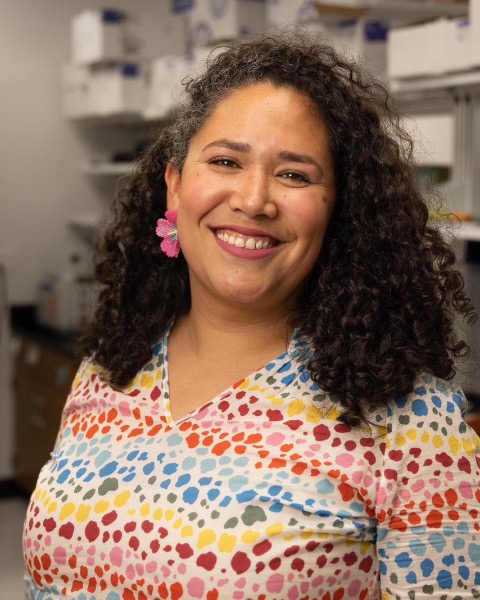Biomedical Engineering Education
Ethics, Access, and Outreach
Fostering Intercultural Skills in Biomedical Engineering though an International Virtual Exchange
Friday, October 10, 2025
2:15 PM - 2:30 PM PDT
Location: Room 31C

Ana M. Porras
Assistant Professor
University of Florida
GAINESVILLE, Florida, United States- DS
Daniel Suárez Venegas
Pontificia Universidad Javeriana, United States
Presenting Author(s)
Co-Author(s)
Introduction: : Many of today's challenges are inherently global, necessitating international cooperation and collaboration. The 2022 Biennial Report to the U.S. Congress on International Science and Technology Cooperation highlights the need to maintain U.S. STEM leadership by fostering a workforce capable of advancing international partnerships. This emphasis on international collaboration is not unique to the United States; the Colombian National Ministry of Education also recognizes internationalization as a crucial component of higher education, preparing students for a globalized workforce.
Historically, the internationalization of higher education has been primarily achieved through study abroad programs, which offer significant benefits such as increased global awareness and enhanced employability. However, these programs are not accessible to all students due to financial, personal, and academic constraints. To address these barriers, virtual exchange programs have emerged as an alternative that expands access to internationalization opportunities regardless of socioeconomic background. These programs use technology to connect students across borders, facilitating collaboration on assignments and the acquisition of global perspectives.
Here, we describe the implementation of a virtual exchange program between biomedical engineering students at the University of Florida (UF) in the United States and bioengineering students at Pontificia Universidad Javeriana (PUJ) in Colombia. The program aimed to improve students' abilities to (1) design engineering solutions for specific biomedical problems, (2) think critically about global issues, and (3) communicate effectively in multicultural settings.
Materials and
Methods: : The virtual exchange program, titled “Comparing Perspectives on Global Health Technology,” involved graduate and undergraduate bioengineering students from PUJ and graduate biomedical engineering students from UF. Students were divided into groups and paired with partners from the other country. Each group identified a health challenge in their partner's country and proposed an engineering solution tailored to the local context. Key themes for each country were defined to guide the design process.
The exchange spanned 7 weeks, involving 32 graduate students from UF and 34 students from PUJ (12 undergraduates and 2 graduates) over two iterations (Fall 2023 and 2024). UF students were enrolled in a graduate elective titled “Global Health in Biomedical Engineering,” while PUJ students were enrolled in “Biomechanics” or “Innovation Practice.”
Pre-Exchange Activities: Students participated in an asynchronous icebreaker activity on Padlet, introducing themselves and sharing a favorite place.
Weeks 1-2: The exchange began with an introductory session via MS Teams, team formation, and expert talks from both countries. Subtitles and translated captions were provided to mitigate language barriers.
Weeks 3-4: Teams met synchronously via MS Teams and Zoom to identify specific health needs. WhatsApp was used for informal communication. Asynchronous activities complemented synchronous meetings to address scheduling challenges.
Weeks 5-7: Teams posted short videos on Flipgrid explaining their findings and received peer feedback. They brainstormed solutions, shared their progress, and refined their ideas through iterative feedback.
Results, Conclusions, and Discussions:: Among students in both countries, only 2 PUJ students and 3 UF students reported having previously participated in a study abroad program. Thus, this international exchange truly expanded access to internationalization opportunities, allowing students to engage in global collaboration without the need for travel.
The efficacy of this virtual exchange was assessed using both formative and summative methods to evaluate students' gains in multicultural competencies and their ability to design engineering solutions for global health problems. Formative assessments included Flipgrid video discussions, 3 minute pitches, and reflection questionnaires. Through these assessments, the students’ demonstrated growth in understanding global health issues, ideating to generate engineering solutions, and increased recognition of the multicultural perspectives.
Summative assessments involved two key surveys: the Intercultural Critical Thinking (IntCRIT) and Intercultural Communication (IntCOMM) surveys developed by the UF International Center. Among the students in the United States, there was an increase in the average responses for 24 out of 26 items in both surveys between the pre-and post-surveys. Statistically significant differences were identified for 4 items: “I can clearly articulate my point of view to members of other cultures,” “I am able to manage when faced with multiple cultural perspectives,” “I am able to think critically to interpret global and intercultural issues,” and “I can recognize how different cultures solve problems.”
In comparing the post-exchange survey results between the students in Colombia and the United States, both sets of students demonstrated similar levels of agreement with both the IntCOMM and IntCRIT statements. Broadly speaking, students in both groups self-reported confidence in their intercultural communication and critical thinking skills after participating in the exchange. This confidence is reflected in agreement with statements like “I am able to interact effectively with members of other cultures” and “I can contrast important aspects of different cultures with my own”.
Thus, student participants showed marked improvements in their ability to design engineering solutions for specific biomedical problems, think critically about global health issues, and communicate effectively in multicultural settings. The success of this virtual exchange highlights the potential of these programs to enhance global competencies across the engineering curriculum.
Acknowledgements and/or References (Optional):: The authors would like to thank all the students who participated in this virtual exchange experiment, and Carrie Martins and Gerardo Lopez Diaz from the Office of Global Learning at the UF International Center for their guidance in designing and assessing the exchange.
